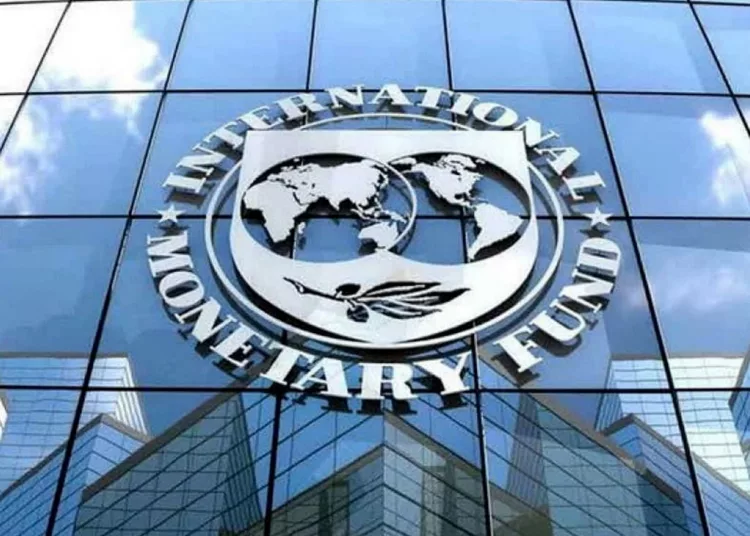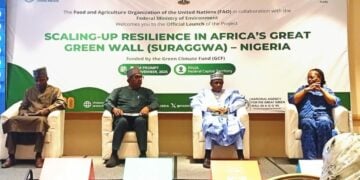The International Monetary Fund (IMF) has projected that Nigeria’s economy will grow by 3.9 per cent in 2025 and 4.2 per cent in 2026, 0.5 and 0.9 percentage points higher than its projection in July. The IMF sees inflation closing this year at around 21.7 per cent and 19.8 per cent next year.
This comes as the Central Bank of Nigeria (CBN) governor, Olayemi Cardoso, projected that Nigeria’s trade surplus will reach about six per cent of the nation’s Gross Domestic Product (GDP), buoyed by recent economic reforms that have made the naira more competitive and encouraged local production. He revealed that the apex bank is developing a framework for settling bilateral trade in local currencies.
On its part, the IMF attributed its upward review to the exchange rate appreciation since July and stronger financial conditions due to rising investor confidence, a supportive fiscal stance, and higher oil production under improved security conditions. It also attributed its upward review to the rebasing, which helped capture more aspects of the economy.
The IMF’s World Economic Outlook (WEO), released on Tuesday, said growth in Nigeria’s sub-Saharan Africa region is expected to remain subdued, unchanged in 2025 from 4.1 per cent in 2024, before picking up to 4.4 per cent in 2026.
Speaking at the October WEO launch press conference at the ongoing 2025 World Bank/IMF annual meetings in Washington, DC, Chief of the IMF Research Department Deniz Igan said, “For 2025, we now project GDP growth at 3.9 per cent, which is 0.5 percentage points higher than our earlier forecast. We have also upgraded the 2026 growth projection by 0.9 percentage points to 4.2 per cent.
“The 2024 growth figure has also been revised upward to 4.1 per cent, 0.7 percentage points higher than previously estimated. The upward revision for 2024 reflects the authorities’ GDP rebasing, which provides broader coverage of economic activities, including those in the informal sector that were previously underrepresented.
“For 2025 and 2026, the improved outlook reflects reduced uncertainty and the limited impact of U.S. tariffs on Nigeria, given its relatively low exposure to those markets. The exchange rate appreciation since July and stronger financial conditions due to rising investor confidence, a supportive fiscal stance, and higher oil production under improved security conditions have led to stronger hydrocarbon growth. Together, these factors contributed to the upward revisions in Nigeria’s medium-term growth forecast,” she explained.
Igan noted that 0.2 percentage points have revised up growth for Sub-Saharan Africa in 2025, and the same applies to 2026, saying, “We now project 4.1 per cent growth this year and 4.4 per cent next year.
This resilience across the region has been supported by macroeconomic stabilisation measures and ongoing reform efforts in several key economies, notably Ethiopia and Nigeria.”
She, however, cautioned that vulnerabilities remain, as “resource-dependent and conflict-affected countries continue to face significant headwinds, and our medium-term outlook indicates that low-income economies in the region are still grappling with a widening per capita income gap compared to advanced economies.
“In such an environment, it is crucial for countries to strengthen institutions, deepen structural reforms, and mobilise domestic revenue through effective tax reforms. Additionally, improving debt management, transparency, governance, and broader structural reforms will be key to unlocking the region’s economic potential.
Meanwhile, speaking at the G-24 press briefing on the sidelines of the IMF/World Bank Annual Meetings in Washington, Cardoso who stood in for the finance minster, Wale Edun, the first Vice Chair of the G24, noted that Nigeira had been shielded from the global uncertainties.
Cardoso, while discussing the impact of the uncertainties generated by trade wars on the global scene, said, “From Nigeria’s perspective, it was less of a problem for us. I think we were very fortunate because a lot of the things that needed to be done, we did them much earlier. As a result, we were able to create resilience and buffers against potential shocks.
“In terms of anchoring expectations, we found that those who followed the Nigerian economy were fairly comfortable. For us, again, oil is basically the only commodity that was so exposed, and the impact on that was relatively modest.
“Now we have a more competitive currency, and as a result, for once, we have a situation where we have a positive balance of trade, a trade surplus, and we expect it to be around six per cent of GDP and remain in that range for some time. Basically, what is happening is a complete restructuring of the economy, with a competitive currency encouraging people to go into domestic production and, of course, discouraging imports.”
On settling bilateral trade in national currencies, the CBN governor noted that having tried it in the past, “it didn’t work out very well for us. That’s not to say that we are not interested in doing this. We are, and we are really at an elementary stage of putting it, putting up a framework now that our currency is more competitive to ensure that it’s a win-win for everybody.”
Also commenting on G24 stance on advancing its members interest, he added: “t’s clear to me that under the leadership of Argentina, the chair of the G-24, we’ve certainly advanced the course with the voice of the emerging economies and been able to get a greater, a more effective seat at the table, especially with respect to the Bretton Woods institutions and getting our voices heard. And I think that, in itself, is a major, major, major step forward. So of course, I expect that the very, very good work that has been done will be further deepened in the years ahead.”





